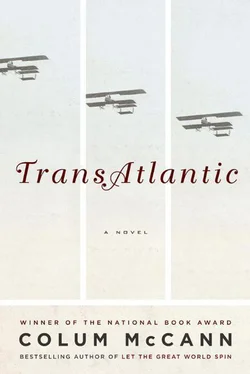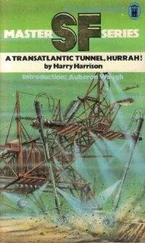I PUT THE cottage up for auction in the early summer of 2011. The furniture was shifted, the paintings taken down from the wall. The air buzzed with lawn mowers. The green grass ran swiftly down to the lough. The window frames and doors were painted. A fresh air moved through the house. The hinges on the half-doors were oiled. The Aga stove was scrubbed. The cushions in the sunroom were patched and the Admiralty charts dusted off.
The past got up and shook itself loose. I stacked my possessions in cardboard boxes and put them in the shed out the back. A cupboard full of vintage dresses. Wooden tennis racquets and presses. Yards of fishing rods and reels. Old boxes of bullets. Useless things.
Jack Craddogh and his wife, Paula, drove out from Belfast to help me pack. I think she wanted to peer into the last of my possessions. I held up an old pair of jodhpurs and wondered how they had ever fit. Jack folded the last of my husband’s clothes into a series of cardboard boxes. They were interested in my mother’s final drawings. At the end she used oils like watercolor, making the paint appear raw, layering it with radiating currents of color. She had a way of distorting or elongating figures: a sort of hunger.
Jack and Paula offered me a small amount for the sketches. They were really after the frames. I didn’t want the money. It was not needed anymore. The bank had extended my overdraft. I took my favorite ones, gave them the rest. They loaded the paintings up in the rear of their car: birds in flight.
Simon, the bank manager, moped around, hangdog with guilt. He walked from room to room, calculating a price that would eventually be his. A peculiar species of real-estate broker came with him in lipstick and a pencil-thin skirt. She had a southern accent. I told her that if she used the word heritage in my presence one more time I’d peck her liver out. Poor thing, she began trembling in her high heels. She was, she said, only doing her job. Fair enough, I said. I showed her where the teakettle sat. She ghosted through the cottage, avoiding me.
Whenever a buyer came, it always seemed that it was never to buy, but to probe the ache. I took to walking Georgie around the island. She kept close at my heels as if she, too, knew that she might have to remember some day soon. An island with edges. It was not so much the memories that tied me to the place, as how it might look years from now. The trees were stubborn against the wind, their branches twisted inland.
I sat on the shoreside rocks. Georgie lowered herself in a heap. I was hardly guiltless in all of this. There was once so much I could have done. Ever since my son was murdered — I had finally learned how to say it — I’d allowed things to dissolve. All of it of my own making. Reckless. Sunken. Fearful.
My visitors wanted to talk to me, investigate their own desire, but they reeked of insincerity, and I couldn’t bring myself to be anything but an ancient curmudgeon. I swished the blackthorn stick through the long grass and shuffled along. When the visitors left, I went back inside and finished off whatever packing needed to be done.
THREE DAYS BEFORE the auction there was a knock on the windowpane. Georgie rose and loped, animated, to the front.
I opened the half-door tentatively. Aoibheann thrust out a bottle of fine French brandy in my direction. David Manyaki was in the car, his face obscured in shadow, the windscreen shaded by the angle of light. I had just about forgotten. He had promised that he would bring the letter intact. He was rummaging in the back, unloosening his sons from their car seats.
“We’ll just air them out a little bit if you don’t mind,” said Aoibheann, but the children were already running around. “We tried calling you. Hope it’s no bother. David’s on his way to Belfast for a conference tomorrow.”
“It’s a bit Mother Hubbard, I’m afraid.”
We made our way through the empty house. Aoibheann wore a long sundress, Manyaki was in one of his bright dashikis. They moved slowly, taking stock of the emptiness. Evidence everywhere. The walls were less faded where the pictures had been. Nail holes in the plaster. Marks of furniture on the floor. A wind came down the chimney and turned the ashes.
They went through the living room, past the fireplace, beyond the kitchen. They were careful enough with their silence. Manyaki put the letter down on the table. I unfolded the envelope and examined the handwriting. It was rather ragged. What mystery we lose when we figure things out, but perhaps there’s a mystery in the obvious, too. Nothing but a simple note. I closed it again and thanked him. It was entirely mine, I would keep it now: no university, no philatelist, no need for archives.
We sat in the sunroom where we could watch the boys run around the garden. I made a lunch of tinned tomato soup and soda bread.
A couple of jet skis hummed their savage insectry across the water. Manyaki rattled my tired heart when he stood politely from the chair and went down to the waterfront and waded in the shallows with his boys, shooed the jet skis away with a shout and a wave of his hands. His short dreadlocks bounced about his jaw. He and the boys walked together along the seawall, dipped out of sight, then came up the garden with three oysters. He shucked them with a screwdriver, and placed them in the fridge in a small tray of seawater. An hour later — he had to drive to the village to get milk for his boys, he said — he prepared them in the pan. White wine and chopped garlic and rosemary.
I asked them to stay the night. Manyaki and his sons dragged the old mattresses out from the barn. Small puffs of dust rose when they hit the floor. We fluffed the pillows and put fresh sheets on the beds. I got predictably teary-eyed. Aoibheann poured a little ledge of brandy into my glass, kept me from dropping off the cliff.
Just after dinner the older of Manyaki’s sons, Oisin, stamped his little feet and said he wanted to feed the gulls. We had half a loaf of bread left. He took my hand and, along with his young brother, Conor, we scattered it up and down the lawn. A little beyond dusk we looked out the window to a herd of red-tail deer stepping high-legged through the gravel. Oisin and Conor sat at the window with their hands against the cold glass, watching. I didn’t have the courage to say anything about how the deer would trample the last of my garden, and I held Conor by the window, until he fell asleep, all five years of him in my arms, and I walked out to shoo the deer away.
I stood in the yard, in the near-dark, listening. The sky was a long scene of silhouettes. The nearest trees seemed blue. The moon appeared, shallow and brittle over the lough. Water lapped up against the shore. The dark descended fully.
When I got back inside, Aoibheann was changing the boys into their pajamas. They bawled a little, then quieted down. She sat at the foot of the makeshift bed and read them a story from her mobile phone.
Once upon a time, she began. I stood at the door and listened. There isn’t a story in the world that isn’t in part, at least, addressed to the past.
I lit the oil lamps, then left my guests alone, and went down to the lough with Georgie. Out I swam. The water was fierce and cold. It moved through the core of me. I glanced at the house. Tomas rose and his tall thin shape went full across the lawn.
When I came back in, I toweled Georgie by the door. Manyaki and his wife were in the sunroom, shaped against the light. A glint off his wire-rim glasses. I caught a snippet of their conversation: his conference, their boys, the upcoming auction. They were leaning close together, across the width of a table, a sheet of paper with some numbers on the table between them. Their reflection in the glass. The water behind them stretched distant and black. I stood in the doorway a long, long time, unsure of what to do or say. I wasn’t interested in their mercy. Nor would I stay, if they stayed.
Читать дальше












